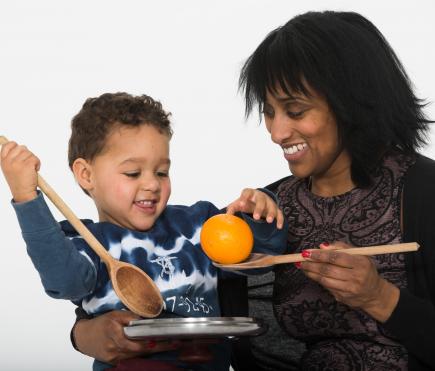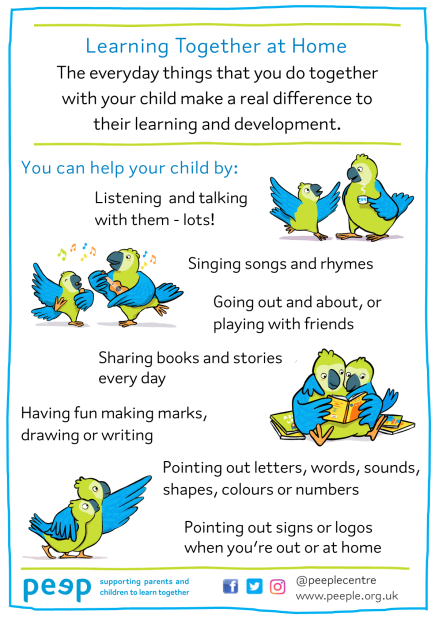Peeple was part of a DfE-funded consortia in 2018 with the National Literacy Trust, NCB and the Foundation Years Trust, to promote the importance of the home learning environment at a strategic and practice level. We jointly produced the following downloadable guidance:
> 'Home Matters' guidance for schools, nurseries, local authorities and public health partners on making the most of the home learning environment.
Our 'call to action' includes these recommendations:
- Mainstream support from leaders and staff for parents to enrich the home learning environment (HLE) across early years, education, healthcare and social services
- Ofsted should include support for home learning in early years inspections
- Initial teacher training and other early education courses should include modules on the home learning environment and working with parents
- Early education messages should be integrated into health services and messaging so that anyone in contact with families pre-birth and from birth to the age of three delivers the HLE message
- There should be national and local public health campaigns on the importance of early childhood development, specifically talking with babies.


